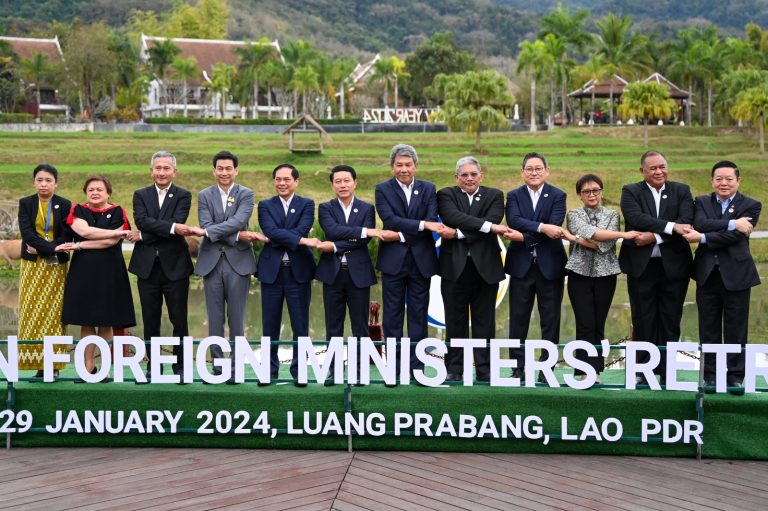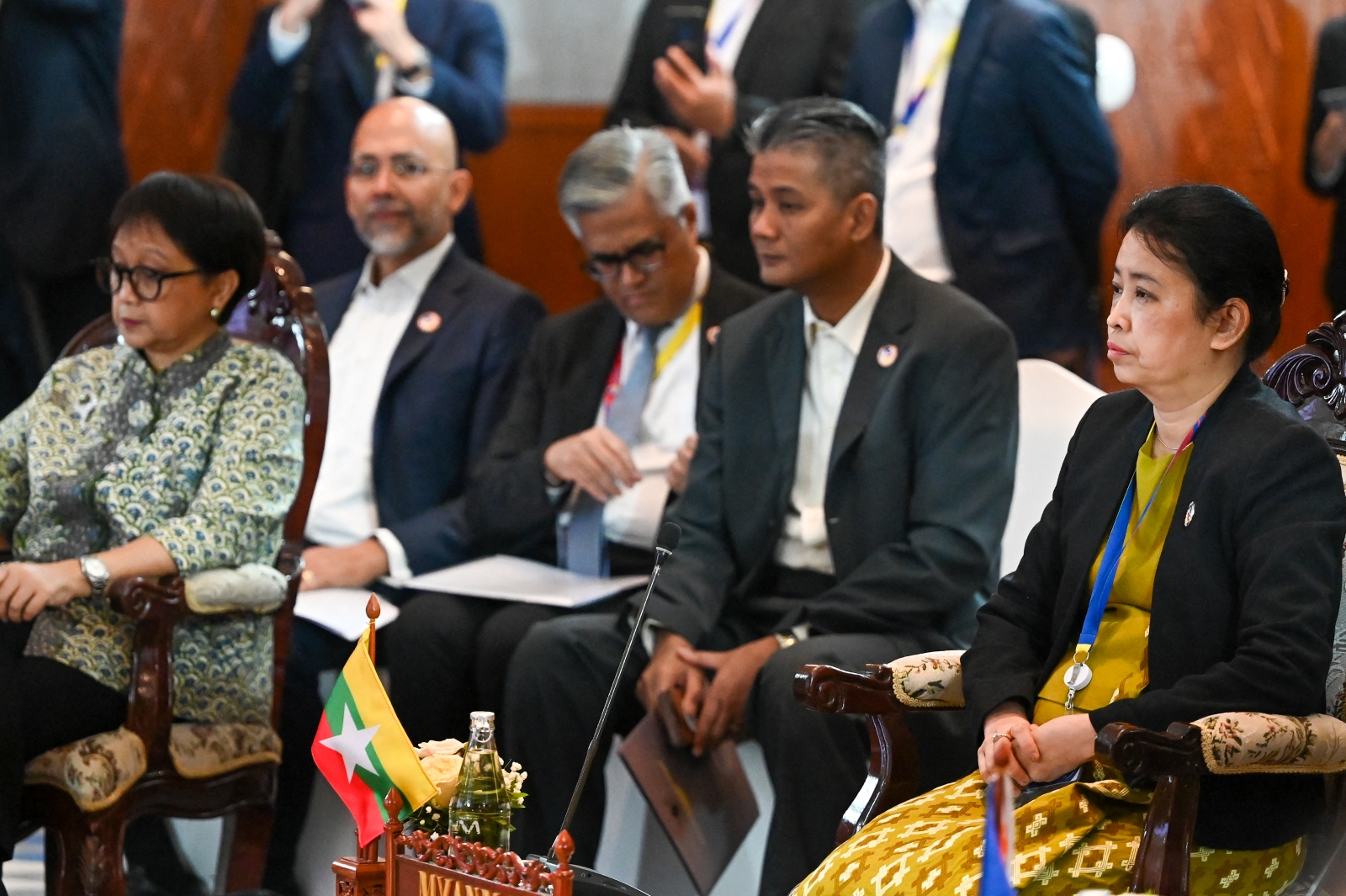Appointments to Joe Biden’s administration suggest a tension between the defence of human rights and great power games with China, but Washington may opt for a more delicate strategy.
By HUNTER MARSTON | FRONTIER
Analysts have been scrutinising the early contours of United States President Joe Biden’s foreign policy, but so far there are few clues as to the new administration’s approach to Myanmar.
There is a consensus that Biden will maintain some of former president Donald Trump’s tough policies on China, such as sanctions against Chinese surveillance technology companies and construction groups involved in building artificial islands in the South China Sea. Most also agree that the Biden administration will bring human rights back to the fore, with more emphasis on democracy, especially as it plays into great power competition with China.
Yet it is anyone’s guess how a preference for multilateralism, human rights and democratic values will comingle with a clear-eyed focus on great power competition with China and the desire for a robust military posture in the Indo-Pacific. This raises the question of how Myanmar will fit into the US’s Asia strategy, and whether it will merely be subsumed into Washington’s China focus.
However, building on the premise that “personnel is policy”, it’s possible to make some predictions based on Biden’s early appointments. The selection of a handful of senior officials who served in the administration of President Barack Obama suggests a resuscitation of US policy before Myanmar largely fell off Washington’s radar in the intervening Trump years.
This cast of appointees includes familiar faces such as Mr Kurt Campbell, whom journalists and analysts in Washington have dubbed the “Asia czar”, and who was instrumental in the Obama administration’s “opening to Burma”. Other key appointments, such as Mr Jake Sullivan as national security adviser, Mr Ely Ratner in the Department of Defense and Mr Antony Blinken as secretary of state – all of whom served at high levels under Obama – have led some to characterise Biden’s presidency as a “third Obama term”.
Not everyone will be thrilled to see a continuation of past policies on Myanmar. Some critics allege (rather simplistically) that the Obama administration’s eagerness for better relations caused it to lift sanctions too quickly, potentially even implicating it in atrocities against the Muslim Rohingya minority. Sceptics will be looking to see if the returning cast demonstrates more foreign policy realism regarding authoritarian regimes, particularly China. Detractors criticised the Obama team as naïve for believing engagement would liberalise Beijing, while others point out that the administration’s rush to secure foreign policy “wins” in Myanmar caused it to ignore warning signs that Nay Pyi Taw might renege on early political reforms.
Sullivan, Biden’s national security adviser, has underscored the need for more engagement with the Association of Southeast Asian Nations, as well as the important role that the US private sector plays in Washington’s Asia policy. While deeper engagement will be broadly welcomed, the Biden administration’s additional emphasis on democracy and human rights in its foreign policy is generating some apprehension in the region. Biden’s pledge to convene a global “Summit for Democracy” raises uncomfortable questions, particularly over the democratic credentials of emerging partners such as Vietnam or even India – not to mention firm US allies like Thailand – whom the Biden administration won’t want to alienate in its competition with China.
Biden’s nomination for secretary of state, meanwhile, has promised that the president will prioritise ASEAN by attending regional summits like the East Asia Summit, which Trump repeatedly skipped. Blinken, a former deputy national security adviser and deputy secretary of state under Obama, has also been vocal on the Rohingya issue. He has vowed that the Biden administration will seek equal rights for the largely stateless Muslim minority, and in his Senate testimony earlier this month committed to initiate an interagency review to determine whether crimes committed against Rohingya amount to genocide.
That will not sit easily with Nay Pyi Taw, given State Counsellor Daw Aung San Suu Kyi’s strenuous defence of the military’s actions, including at the International Court of Justice in The Hague. Yet internal State Department communications shared with this author reveal that Blinken’s team recognises the need to preserve the relationship with Aung San Suu Kyi by engaging and encouraging reforms, not by lecturing or isolating. In his testimony, he asserted, “We’ll engage the world not as it was, but as it is,” and pointed to “[a] world of rising nationalism, receding democracy, [and] growing rivalry with China.”
The new US ambassador to Myanmar, Mr Thomas Vajda, struck a similar balance in his confirmation hearing. Although Vajda made clear he intends to hold Myanmar accountable for human rights abuses against ethnic minorities (especially the Rohingya) in his testimony before Congress in August, he also suggested that he views Myanmar in the larger context of competition with China: “It is … critical that we support Burma’s efforts to resist malign foreign influences and challenges to its sovereignty.”
Vajda served as deputy chief of mission at the embassy in Yangon from 2008-11, during the Obama administration’s rapprochement with Nay Pyi Taw. Mr Jack Myint, Myanmar manager at the US-ASEAN Business Council, told this author that Vajda is “a good listener, with a deep understanding of and appreciation for the nuances of Myanmar’s political economy, history and culture”.
With the Democratic Party now in control of both chambers of Congress, its lawmakers will be able to shift focus to Myanmar’s shaky democracy and human rights record. Previously, Senate Majority Leader Mitch McConnell, a long-time friend and advocate of Aung San Suu Kyi, blocked action to pressure her government over democratic backsliding and sanction the military.
A bill sponsored by Senator Ben Cardin (Democrat, Maryland), S.1186, the Burma Human Rights and Freedom Act, would block the president from providing security assistance to the Tatmadaw and require the State Department to report on specific members of the military to include on its blacklist of specially designated nationals (SDN). The bill, introduced in 2019 and referred to the Senate Foreign Relations Committee, has not yet come up for a vote. The House of Representatives passed a similar bill introduced by Mr Elliott Engel (Democrat, New York), H.R. 3190, the Burma Unified through Rigorous Military Accountability Act of 2019, before it died in the Senate.
Nevertheless, it’s unclear whether Myanmar will be a priority for the new Congress given the pressing domestic cleavages in the US, which will widen after impeachment hearings against Trump begin in February. According to Jack Myint, “It is possible that Congress may put out some sanctions legislation, and the administration will follow through. But that’s not new – it’s the nature and scope of these sanctions that we have to watch.”
At the Pentagon, Ms Lindsey Ford will be deputy assistant secretary of defense for South and Southeast Asia, covering Myanmar and the broader Indo-Pacific. Ford previously served as special assistant to Secretary of Defense Mr Chuck Hagel, where she worked on the US “pivot to Asia”under Obama. Her subsequent work at the Brookings Institution in Washington focused on China’s security presence in Southeast Asia, so it is likely that great power competition with China will remain her office’s focus. Meanwhile, Biden’s newly confirmed secretary of defense, Mr Lloyd Austin, whose long military career included key appointments in the Middle East and has no specific Asia expertise, highlighted the challenge China poses to US national security in his testimony on January 22.
Reconciling these competing factions – no easy task – will fall to Campbell, whom Biden has appointed coordinator for Indo-Pacific affairs. Campbell, the primary architect of the Obama administration’s Asia “pivot”, brings deep knowledge of the region to the position, is well-known across Asia and has a reputation for getting things done. Campbell spearheaded the Obama administration’s review of Myanmar policy under Secretary of State Ms Hillary Clinton, which led to the easing of sanctions and engagement with the post-2011 government of President U Thein Sein, in support of the country’s tentative reforms.
This cast of characters provides some indications of Biden’s Myanmar policy. The competing interests are emblematic of a perennial tension underlying US foreign policy – values versus interests – but the particular dilemma is how to advance democracy and human rights while also maintaining pragmatic engagement and fitting the US-Myanmar partnership into wider strategic goals vis-à-vis China.
Although the Biden administration has signalled an emphasis on democracy and human rights, ultimately Washington may opt for a more delicate strategy to retain influence in its broader competition with Beijing. A genocide determination, however, would pose major complications for US engagement with Nay Pyi Taw. The interagency review could also create a rift within the Biden administration if senior-level officials find themselves on opposing sides of the debate.
If it chooses engagement, Washington could capitalise on areas of shared interest with Nay Pyi Taw in ways that satisfy both its values and strategic interests. The Tatmadaw and Washington share a mistrust of China’s strategic intentions, and the Biden administration could work with Aung San Suu Kyi to repair the relationship as a hedge against overreliance on China by pledging more investment, as well as technical support for infrastructure investment financing along the lines of USAID’s behind-the-scenes assistance to renegotiate the Chinese-funded Kyaukphyu port project. It could even dangle the possibility of resuming military-to-military if the Tatmadaw commits to ending violence against civilians and offers to be held accountable for its past actions – as unlikely as this may be. Such a carrot-and-stick approach could convince the military to support further democratisation by relaxing its grip on political power in return for a resumption of ties with its American counterparts, and it could empower Aung San Suu Kyi to push for democratic reforms to the military-drafted constitution.
This path is not without risk for Washington; engagement without progress on democracy and human rights could further tarnish the legacy of Obama-era officials who have been accused of rushing rapprochement with the generals. Whether Washington can strike a productive balance in its Myanmar policy may ultimately depend on who has President Biden’s ear.







